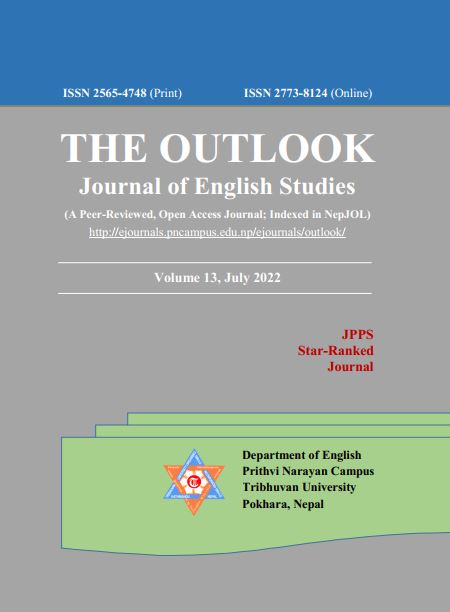Change and Continuity in Food Habits of South Asian Immigrants: An Accommodative Analysis of Fictions by Smith and Naipaul
DOI:
https://doi.org/10.3126/ojes.v13i1.46696Keywords:
Accomodative interpretations, cultural meanings, food values, forbidden food, reputation incinerationAbstract
This article discusses the food issues pertaining to South Asian immigrants’ interactions with the West. Zadie Smith’s White Teeth and V.S. Naipaul’s The Enigma of Arrival constitute the characters who are immigrants from Bangladesh and India to Trinidad to England. Having Hinduism and Islam as their religious roots, the characters manifest their traditional food preferences, taboos and wish to change. For instance, a Muslim character averting the pork, bacon and even the prepared meals and a Hindu character intending to avoid the chicken roast are the cases in hand. Similarly, the change landscape has been demonstrated by a Muslim character ordering for the bacon at a café, a Hindu pundit sitting on table while dining instead of asking for the flour sacks or sugar sacks with the cotton on top. These small-scale changes are the realities of the interstitial interactions of food traditions in the immigrants’ lives. Thus, the article aims to examine the subtlety of food habits, food taboos and loyalty to one’s own food traditions. To meet the objective of this study, the article has adopted accommodative analysis as an approach to analyze these two South Asian novelists’ works that deal with the change and continuity in food habits of the immigrants. Accommodative analysis attempts to see the cultural negotiation as the attempt to foster a better life despite overt differences.
Downloads
Downloads
Published
How to Cite
Issue
Section
License
Copyright (c) 2022 Shiva Raj Panta

This work is licensed under a Creative Commons Attribution-NonCommercial 4.0 International License.
This license enables reusers to distribute, remix, adapt, and build upon the material in any medium or format for noncommercial purposes only, and only so long as attribution is given to the creator.

